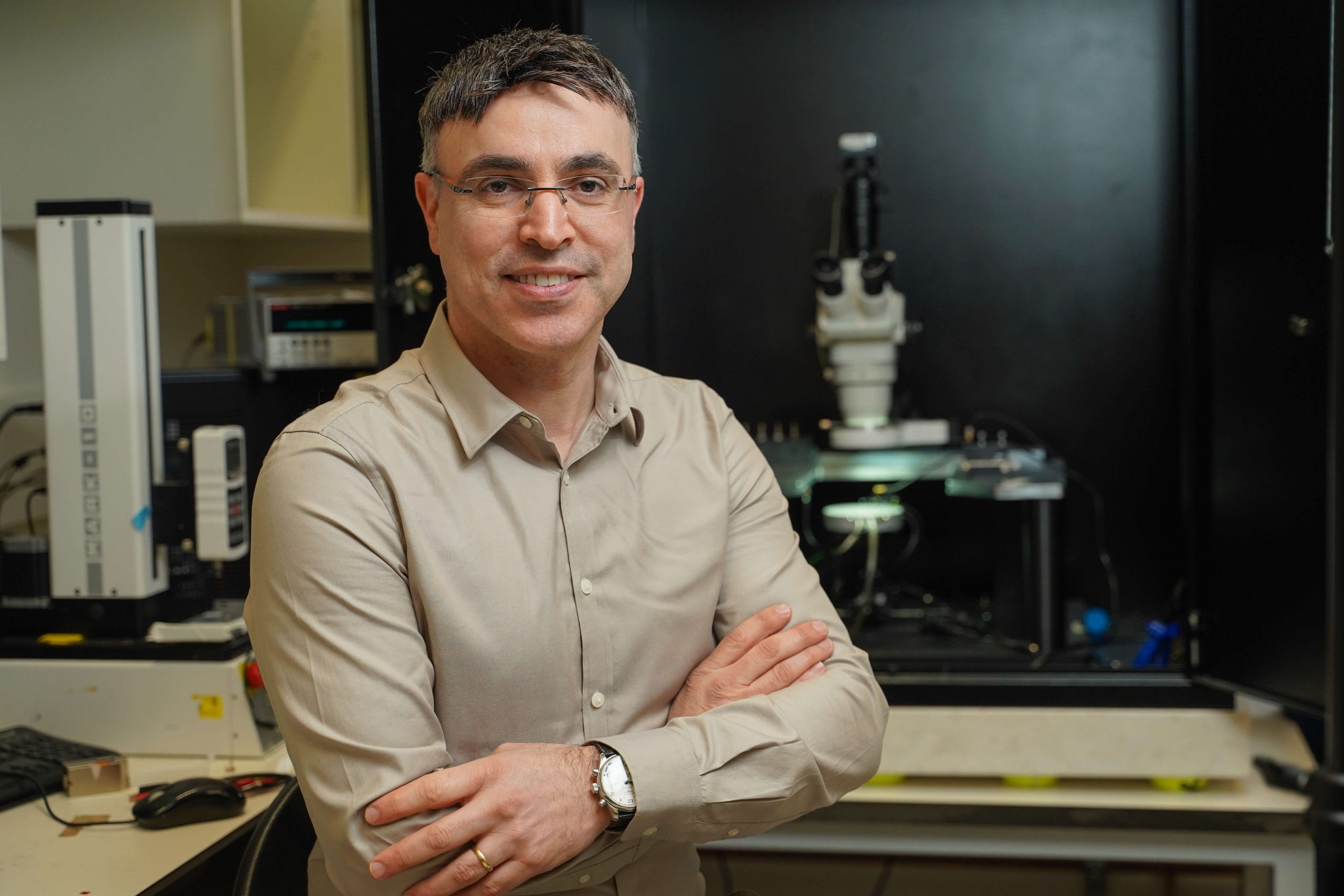Reimagining the Next 100 Years
How Will We Stay Healthy 100 Years From Now?
Professor Hossam Haick
Wolfson Faculty of Chemical Engineering
The next century will see a global health revolution driven by ubiquitous access to advanced noninvasive diagnostic tools that enable real-time monitoring and early detection of diseases for billions of people across the globe.
Nanorobots could revolutionize medicine and surgery by traversing the human body to conduct repairs and administer targeted treatments.
Artificial intelligence could sift through personal health data to detect the advent of diseases and medical conditions before symptomatic manifestations appear, creating an era where chronic ailments do not mar the essence of life, and wellness is not a battle but a harmonious dance.
With universal access to advanced diagnostics and treatments, the barriers of inequality in health care could be demolished, fostering an ethical era where technology is intertwined with humanity’s collective consciousness and values.
At the same time, self-sustaining nano sensors could act as omnipresent sentinels that monitor ecological changes and implement corrective measures autonomously.
Coupled with revolutionary shifts in energy production, storage, and consumption, these environmental guardians could herald a new era of ecological balance and sustainability that mitigates the impacts of climate change and preserves the sanctity of life on Earth.
As technology and biology become seamlessly integrated, the emergence of biohybrid systems could enhance natural human capabilities and extend life, marking a new epoch where augmented people are commonplace.
Ultimately, this transformative trajectory could bring about a world of innovation and knowledge, with the Technion and Israel leading the charge toward a brighter and more harmonious future for all.
The scientific discourses led by the Technion and Israel could be rich tapestries of interdisciplinary dialogues, encompassing myriad fields such as nanotechnology, AI, medicine, environmental science, and space exploration.
These dialogues could foster the germination of ideas that possess the potential to solve the most pressing challenges of humanity and unlock the untapped potential of the universe.


